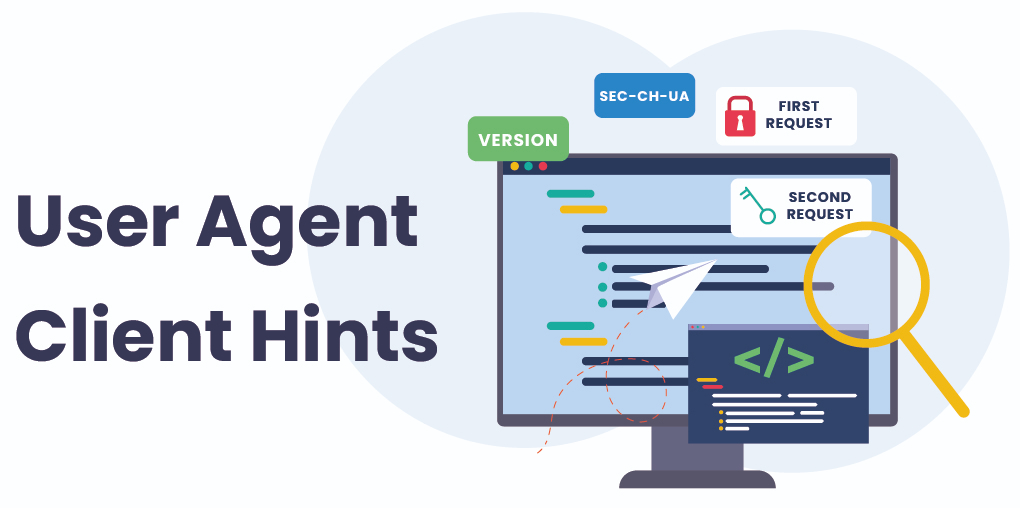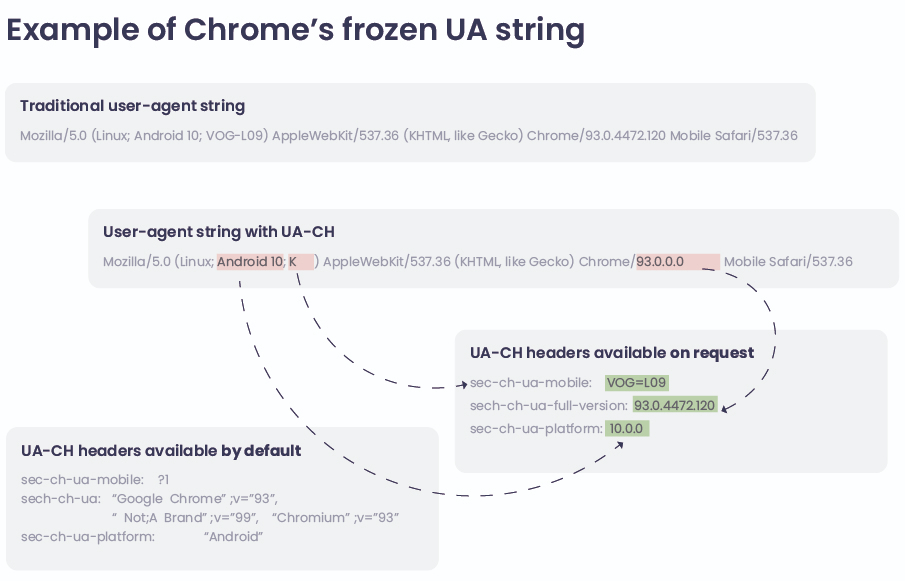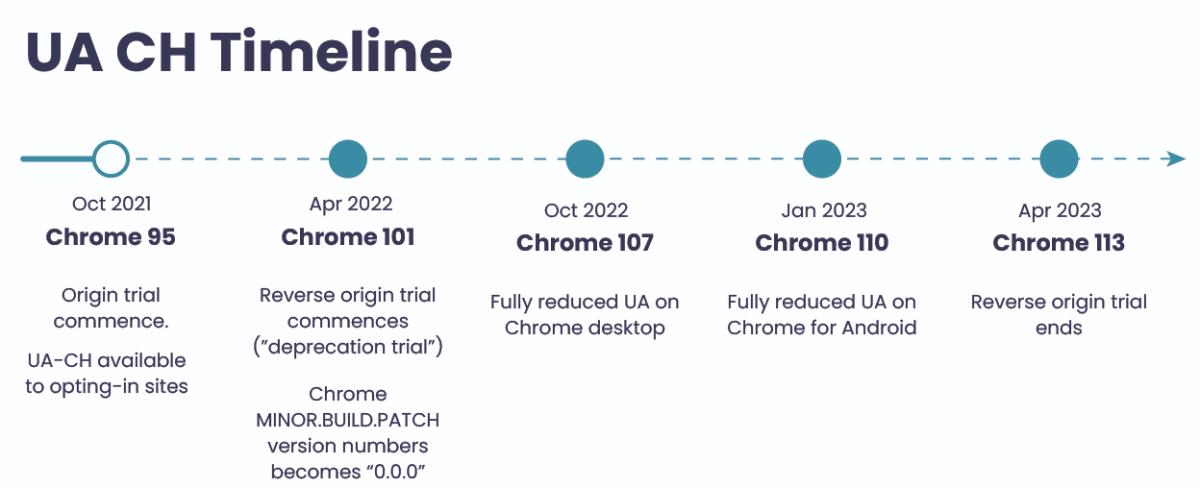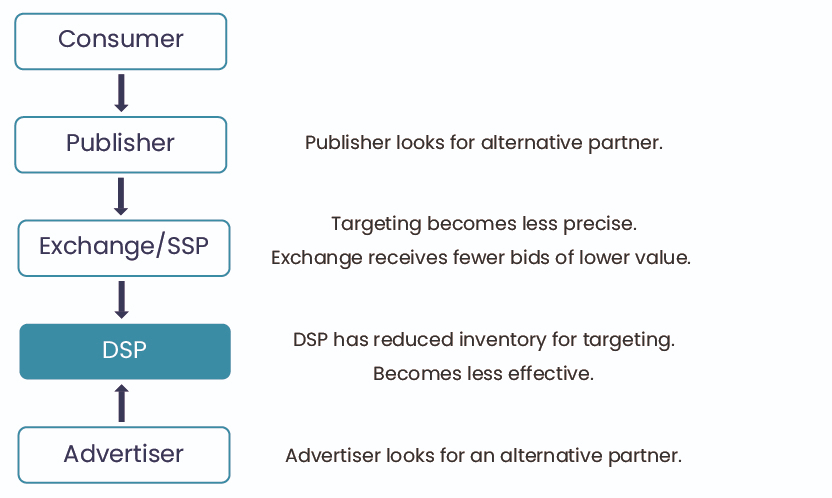DeviceAtlas works with many different businesses from a variety of industries, all with a common goal (besides generating revenue, of course!): understand devices used to engage with content and services. Device intelligence allows businesses to identify and return relevant data properties for the devices accessing their content. Given that all digital content is consumed on a connected device, knowledge of these devices is crucial for several reasons including UX optimization, internal security, reporting analytics and granular targeting opportunities.
The Current Device Intelligence Landscape
Device intelligence helps businesses to improve commercial decision making, and these solutions can be broken down into the following categories:
UA parsers
These are open-source solutions that parse user agent strings and return information contained in it. This includes properties such as OS, OS version, browser, browser version, and sometimes device model. There are currently more than 2,700 UA parsers on GitHub which makes it an easily accessible solution for many companies to adopt.
UA parsers with device databases
These solutions combine a UA parser and a device database which enables companies to identify comprehensive information about the device consuming their content. This information would be more in depth and the databases have much better device coverage than an open-source UA parser.
In-house built solutions
Finally, some companies opt to build UA parsing solutions in-house. However, it's important to note that many of these leverage the capabilities of free UA parsers from GitHub. Therefore they are technically employing elements of both the in-house solution and a third-party UA parser.
This existing landscape identifies how companies are currently identifying and analyzing their device traffic. However, a massive change is coming that will disrupt all 3 of these…

The New Device Landscape: Client Hints
Google's user-agent client hints proposal (which builds on HTTP client hints) has been a major topic of discussion for several years. The main goal of this proposal is to reduce the passive fingerprinting area exposed to the network by the traditional user agent string, and will be done by deprecating and freezing the user-agent string. This means that UA strings will expose much less information in the HTTP headers than they did before. Much of the granular information will be removed and only properties such as browser name, major version and platform name will remain visible. All other information that was originally visible in the traditional UA string will now need to be explicitly requested by a header that the web server sends the client.
By design, web servers have to ask for client hints to be sent, but they can only ask in response to the first contact from a browser. This means that the first request (i.e. the first ever request from a particular browser to a particular website) will not contain hints. So, if the website requires detailed model information to respond with an appropriate page (as most major websites do), the website has to redirect the user to force a reload of the page, this time with the hints the server has requested, i.e. on the second request.

The timeline for Client Hints has been somewhat murky with several milestone dates being pushed back. The first change occurred in May this year with the removal of the minor browser version. The next major change is set to happen on October 25th when Chrome 107 is rolled out and the UA string on desktop will be reduced. This change will apply to all subsequent page loads on desktop operating systems for sites that do not opt into the deprecation trial. In February 2023, Chrome 110 will then introduce changes on mobile (Android).

What Does Client Hints Mean for Businesses?
The upcoming changes to the UA string will have a significant impact on the device intelligence landscape. Most notably, many of the open-source parsers will break. With so many solutions being freely available on platforms such as GitHub, developers merely maintain these as a hobby. While setting up a new open-source project may be exciting and interesting at the outset, the burden of keeping it up to date can be cumbersome. There is far more data gathering than coding involved and it is a never-ending job. Once developers realize this they often lose interest and the projects die off.
The client hints standard is going to compound this even further. Open-source projects will have to support the existing UA standard and the new CH standard, making the process even more complex for developers. It also means that a huge number of these existing parsers will become obsolete because they have not been updated. New projects will pop up and die away just as before.
The impact of this on businesses will be significant if they rely on open-source parsers as a device intelligence solution, which will be the case for a lot of in-house solutions. Many of these rely on open-source parsers as well as the technology that the in-house developers have built, so any problems that occur with the open-source parser will inevitably impact the company's solution also and it will likely break.
Commercial Impacts of Open-Source Parsers Breaking
Relying on unmaintained open-source parsers will result in a significant compromise on commercial success for businesses, particularly in the areas of optimization, analytics and monetization in general.
Analytics & Optimization
Businesses that trust a device intelligence solution to provide precision reporting and analytics insights will certainly be affected by the new Client Hints standard if that solution is not well maintained and updated accordingly. It will be far more difficult to establish user behavior patterns without knowing the user devices or their capabilities, and businesses will lose out on that aggregated view of device usage and customer engagement. The use of device intelligence for analytics purposes will also impact the ability to optimize content.
If a company can no longer determine the capabilities of its users' devices, they forfeit the ability to optimize those experiences accordingly. This will in turn create an even more significant problem - accessibility.
Section 508: Accessibility is a key component of the Rehabilitation Act in the United States, and Section 508 of the legislation specifically asserts that federal agencies, along with any business collaborating with federal agencies, must ensure that all digital communications, i.e. websites, online training, equipment are accessible to all individuals. By not optimizing user experiences based on device capabilities, the risk of inaccessibility significantly increases as well as non-compliance with the legislation. For example, not every visitor to a website will have a high-end device with good connectivity. For content to be accessible, a user must be able to consume it on their device, irrespective of any limitations of the device capabilities or connectivity. This has implications for the reach of content both socioeconomically and geographically.
Monetization
Losing device capability data will also set off a chain of events that result in reduced monetization opportunities for businesses. The ability to build device graphs will be no longer possible and thus the connection between user and devices associated with them is broken. Paywall protection will also be compromised which is significant in terms of digital content protection.
The reliability of device targeting will also be of concern to businesses, particularly in the AdTech space, that are currently using open-source parsers. As these solutions fail to adapt to the new landscape, granular device targeting will cease to exist and those devices will be categorized simply as desktop or mobile. This will have a profound effect on the likes of DSPs, Exchanges and Publishers.

The DSP will have access to less inventory for which device targeting is possible, making them less desirable to Advertisers who will seek a better alternative. Meanwhile, the Exchange will receive fewer, less valuable bids since the targeting is less precise and their Publisher partners will also look elsewhere for a solution.
Conclusion
Businesses must weigh up the importance of the new client hints standard when considering their device intelligence solution: is it a good idea to commit to a fresh, new open-source project without knowing the efficacy of it in the coming months when this change happens? Is it better to choose a solution provider that has a long track record of delivering reliably at the highest level to world-class customers? There are a number of questions to be answered. DeviceAtlas has deep knowledge of Client Hints and is happy to answer any questions you may have about this new initiative. Feel free to reach out to us directly.




